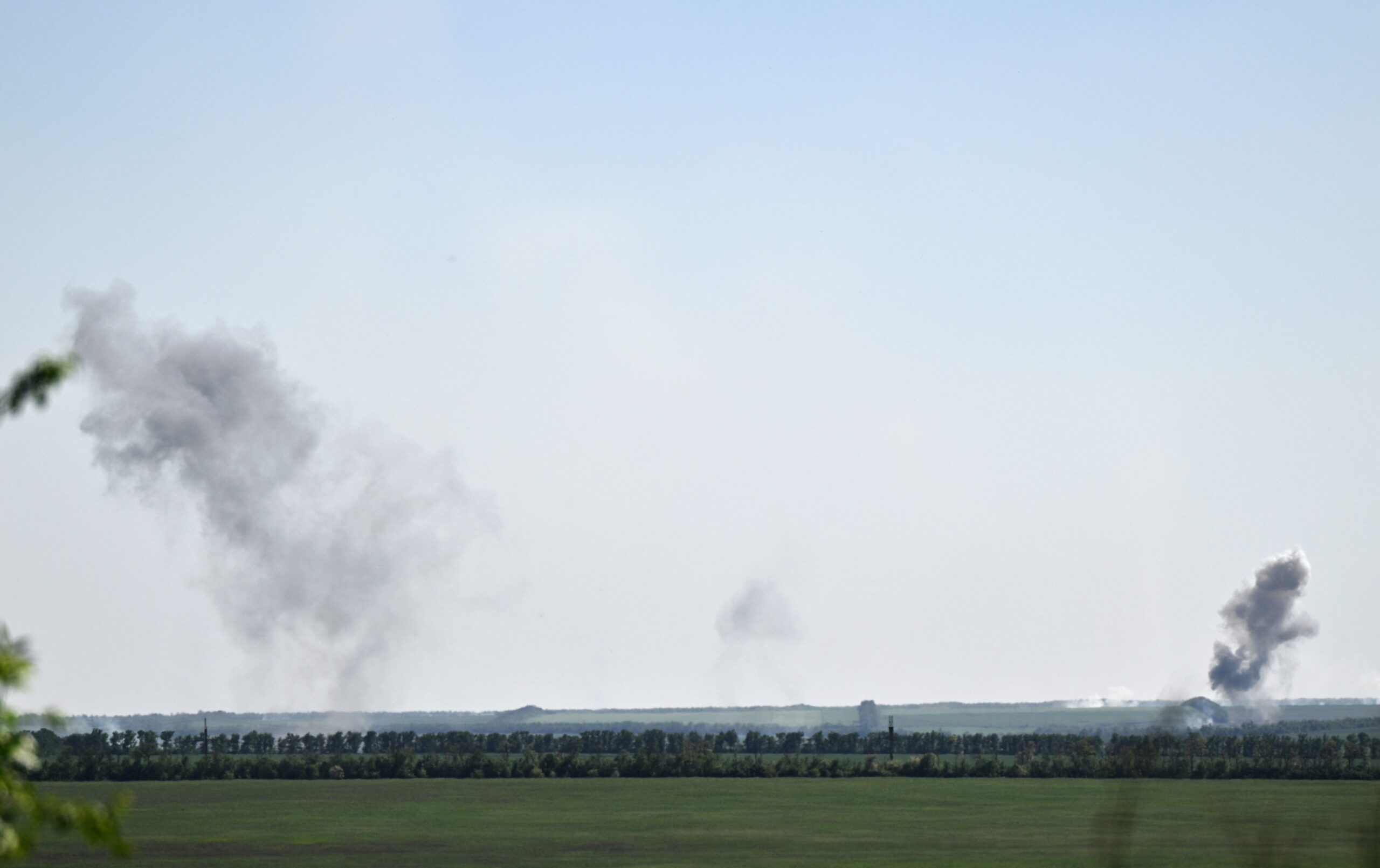
Smoke ascends following shelling in the area of Ocheretyne in the Donetsk region, on May 5, 2024, amid the Russian invasion of Ukraine. Agence France-Presse
Undisclosed, UKRAINE — Russia has redoubled its offensive in Donbas over the past month, making significant advances as Ukraine awaits a boost in Western arms supplies.
Plumes of black smoke could be seen on Sunday near Ocheretyne, Russia’s latest conquest since the capture of the strategic city of Avdiivka in February.
Since the fall of Avdiivka, better armed and more numerous Russian forces have been steadily advancing westwards.
The advance accelerated in mid-April.
READ: Ukraine warns front ‘worsened’ as Russia claims fresh gains
Ukraine’s defense ministry on Sunday said it had registered a total of 125 Russian attacks along the 700-kilometer (435-mile) front line over 24 hours.
More than half of those attacks were in the area around Ocheretyne and the Ukrainian-held city of Chasiv Yar, which is under intensifying attacks.
For comparison, on a day in March, Ukraine said there had been 53 attacks, including 21 in those two areas.
‘Collapse of defenses’
While there have been no major breakthroughs, Russia’s advance has caused a lot of surprise and prompted criticism within Ukraine.
The DeepState Telegram channel, which is close to the Ukrainian army, blamed the command of the brigade deployed in Ocheretyne for the “collapse of defenses in the area, which led to considerable losses”.
READ: A 98-year-old in Ukraine walked miles to safety from Russians
The brigade said on Facebook that its soldiers “did not run away” but had been subjected to daily fire from Russian positions that was “10 to 15 times” more powerful than Ukraine’s firepower.
Ukraine has been warning for months about shortages in ammunition, blaming delays and indecision over Western supplies.
Washington last month finally approved a $61 billion aid package but observers warn that it will take time for that aid to materialize on the battlefield.
“The enemy understands that ammunition will start to appear… in two months,” said Yuri Fedorenko, commander of the Achilles drone battalion of the 92nd brigade operating on the eastern front.
“These two months of war will be very, very, very intense. The enemy will try to take as much as possible between now and then,” he said.
At their current rate, Russian troops could soon threaten the strategically important T0504 road, which is now around a dozen kilometers from the front.
Civilian workers could be seen digging trenches and anti-tank ditches on the road, which lies north of Ocheretyne.
“They started two weeks ago,” said a resident of the village of Novoolenivka, close to the ongoing excavations.
The road goes from Pokrovsk in the west to Kostyantynivka, a Ukrainian logistical hub, then passes north of Chasiv Yar towards Russian-held Bakhmut.
Ukrainian military chief Oleksandr Syrsky said earlier that Russia was aiming to capture Chasiv Yar ahead of Thursday — the May 9 anniversary of the Soviet Union’s victory over Nazi Germany.
While the capture of Chasiv Yar does not appear imminent, the Russian army is in full offensive mode around the city.
This in turn would help Russia attack Kramatorsk, the main city in the region under Kyiv’s control and an important rail and logistics hub for Ukraine.
Off-road motorbike attacks
“If the enemy captures Chasiv Yar, they could take control of Kostyantynivka, Druzhkivka and Kramatorsk with long-range firepower,” Fedorenko said.
“It would be a very good base to continue the advance,” he said.
A brigade commander told AFP earlier this month that Russian forces were employing unusual tactics to advance, including off-road motorcycles.
These vehicles helped Russian forces “breach our positions” during one advance, as their “speed and manoeuvrability played in their favour”.
Ukraine so far managed to resist Russian attacks to the east and north of Chasiv Yar but Russian troops have advanced from the south in recent days.
In order to take the city, however, they would have to cross a dried-up canal six metres in depth and 30 metres in width.
The brigade commander said Russian tactics were always the same — aerial bombardment followed by artillery barrages and assaults with armored vehicles and infantry despite heavy losses.

